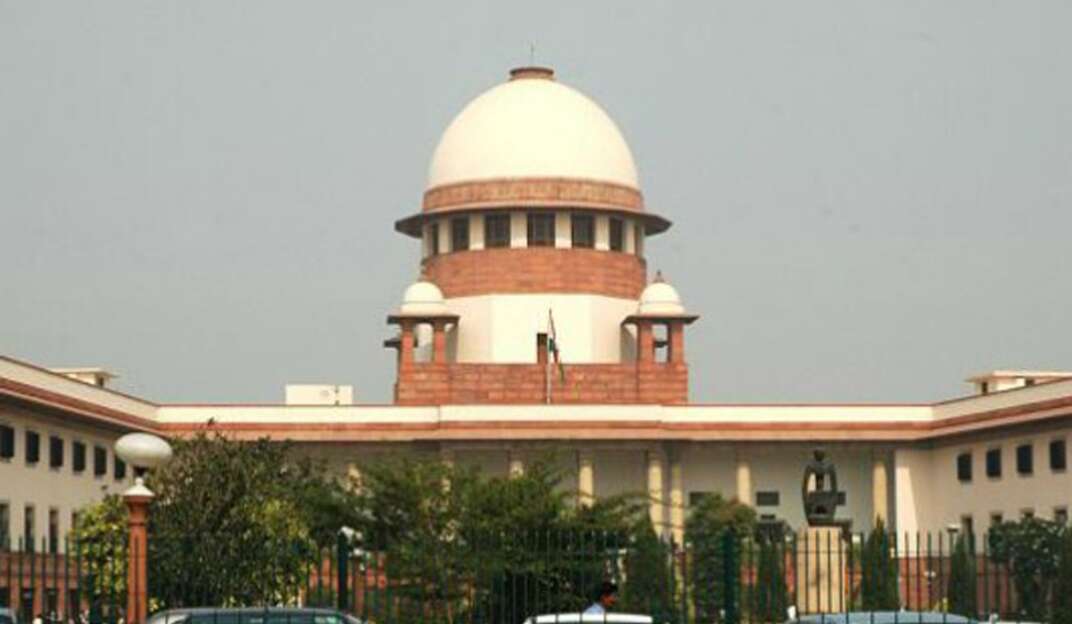SC to implement digital system for faster release of convicts after bail orders

New Delhi: Concerned over the plight of jail inmates who are not released despite grant of bail, the Supreme Court on Thursday ordered the implementation of its project — Fast and Secure Transmission of Electronic Records (FASTER) for faster communication and compliance of its orders and asked all states and Union Territories to ensure Internet facility with the adequate speed in every jail.
The FASTER system proposes transmission of e-authenticated copies of the interim orders, stay orders, bail orders and record of proceedings to the duty-holders for compliance and due execution, through a secured electronic communication channel, a Bench headed by Chief Justice of India N V Ramana said in its order.
"We direct the Chief Secretaries of all the States/UTs to ensure the availability of Internet facility with the adequate speed in each jail in their respective States/UTs and take necessary steps to arrange for Internet facility expeditiously wherever the same is not available. Till then, the communication shall be made through the Nodal Officers of the State Governments under the FASTER system," the Bench, also comprising Justices L Nageswara Rao and Surya Kant, said.
The top court directed the Director-General of the National Informatics Centre, Home Secretaries of all states and UTs, and their DGP or IGPs to ensure smooth and successful implementation of the FASTER system and coordinate with its Registry.
FASTER comes into being after the Bench had taken suo motu cognizance of delay in the release of convicts even after granting of bails on the grounds such as non-receipt or non-verification of the judicial orders.
"We are concerned about the plight of the jail inmates who are not released despite the bail orders passed by this court due to delay in communication of such orders. It is high time to utilise the Information and Communication Technology tools for efficient transmission of Court's orders," the order stated.
Taking note of the suggestion made earlier in the day by amicus curiae and senior advocate Dushyant Dave, the Bench said the issue of requisite amendment in the Rules and Procedure for the Supreme Court of India will be taken up on the administrative side.
It further directed all the duty-holders (lower courts, jails) to amend their Rules /Procedure/Practice/directions forthwith to recognise the e-authenticated copy of the order of this court communicated to them through the FASTER system and shall comply with the directions contained therein.
The Bench took note of the proposals prepared by the Secretary General of the top court and said they contained the pre-requisites and the timelines to work out the implementation of the FASTER system.
It took note of the fact that only 19 states have submitted their compliance report concerning the availability of Internet facilities in prisons and directed the other states and UTs to do the needful.
The order noted the issue of non-availability or partial availability of Internet connectivity in the state of Arunachal Pradesh, Nagaland, Assam, and Mizoram and ordered that remedial measures be taken.
The Bench will now take up the matter after two weeks.
Earlier in the day, the top court reserved its order after taking note of the report of its Secretary General Sanjeev S Kalgaonkar and the submissions of Dave.
Referring to Supreme Court Rules, the report said they enable the Registry to transmit a certified copy of the judgment or order either in physical or electronic form.
It is proposed that the e-authenticated copies of the Record of Proceedings/orders, digitally signed by the officer authorised in this respect may be transmitted through the FASTER system to the duty-holders of the justice system, Kalgaonkar said in his report.
The report said the system proposes to provide a secure communication channel between the duty-holders and two-factor authentication will further ensure authorised user access on the email domain. In order to create an authentication mechanism, a unique QR Code is proposed to be appended on each of the pages of judicial record which will lead the user to the website of the Supreme Court where the relevant Record of Proceedings/orders are uploaded, for the purpose of verification, the report said.
The Bench, at the outset, was apprised by Dave that an outstanding report had been prepared by the Secretary General on July 29.
Subject to the orders of this court, if the procedures are changed then the authenticated e-orders of the court will be sent faster, Dave said, adding that four states have some issues in their implementation due to some poor Internet connectivity.
"The scheme (FASTER) will ensure effective implementation of Article 21 (right to life) of the citizens and the nation should be grateful to you (CJI)," Dave said.
"Thank You, Mr Dave! Nation should be grateful to the institution and not to any individual," the CJI responded.
Exasperated over reports on delay in implementation of bail orders, the Apex Court on July 16 had said it would set up a secure, credible and authentic channel for transmission of the orders for execution, saying "in the digital age, we are still looking at the skies for the pigeons to communicate the orders".



